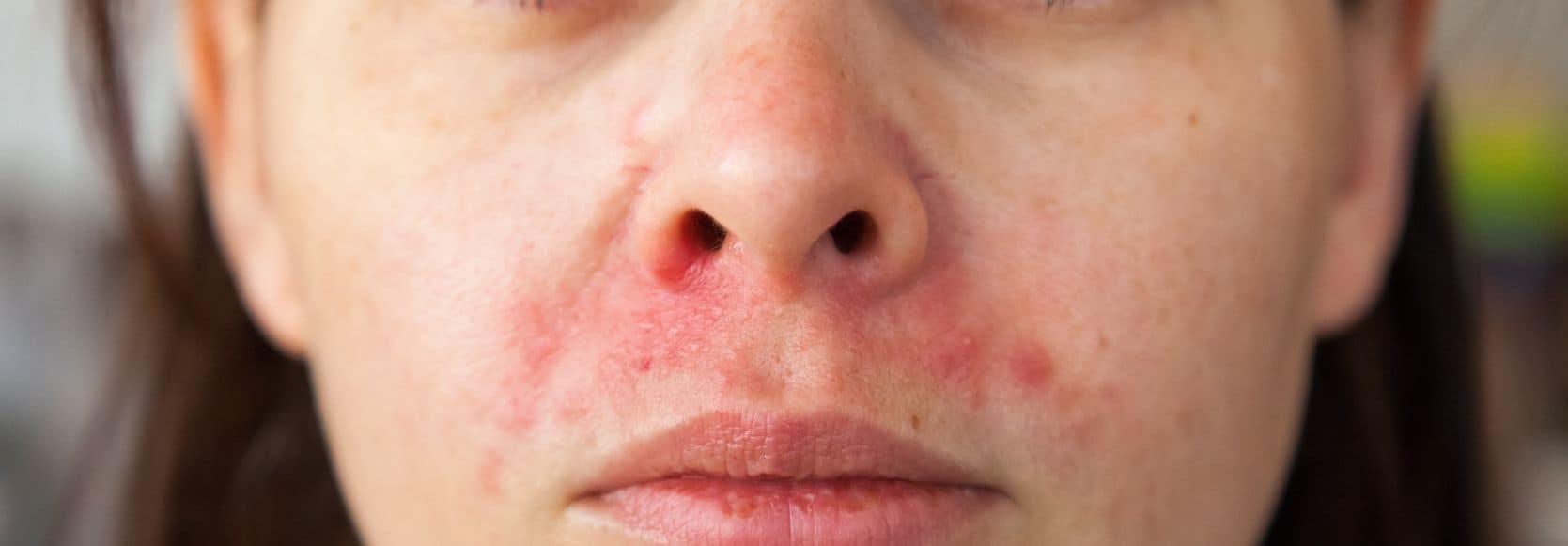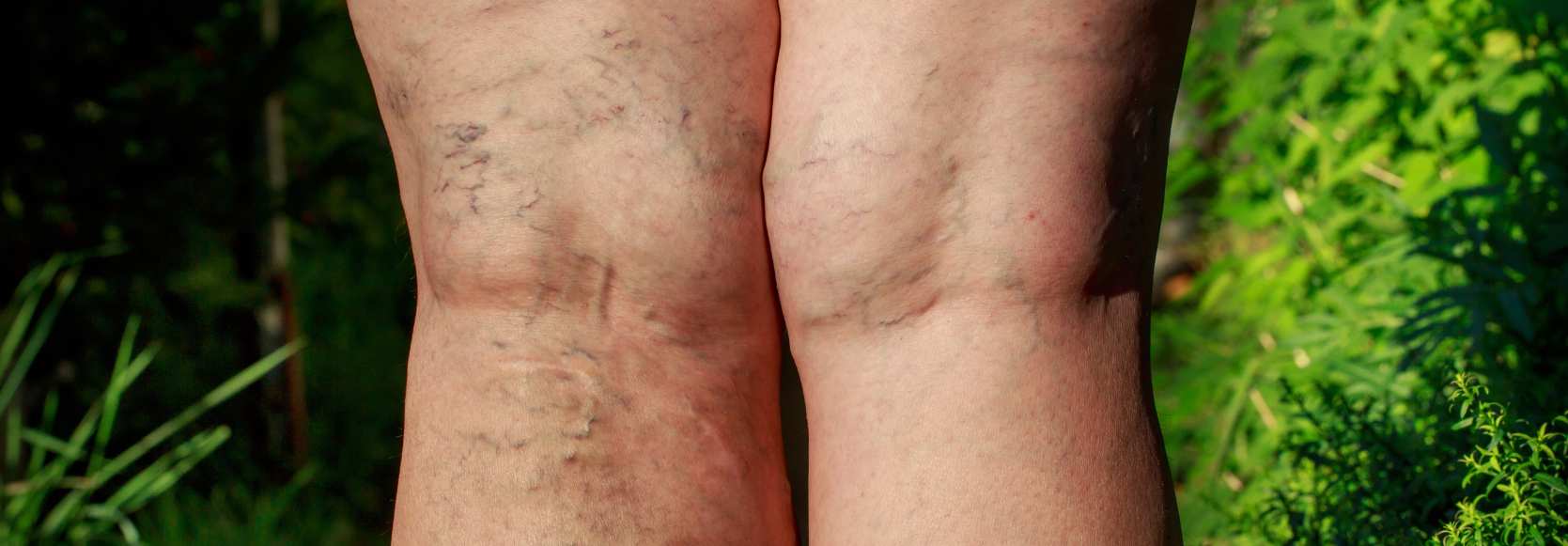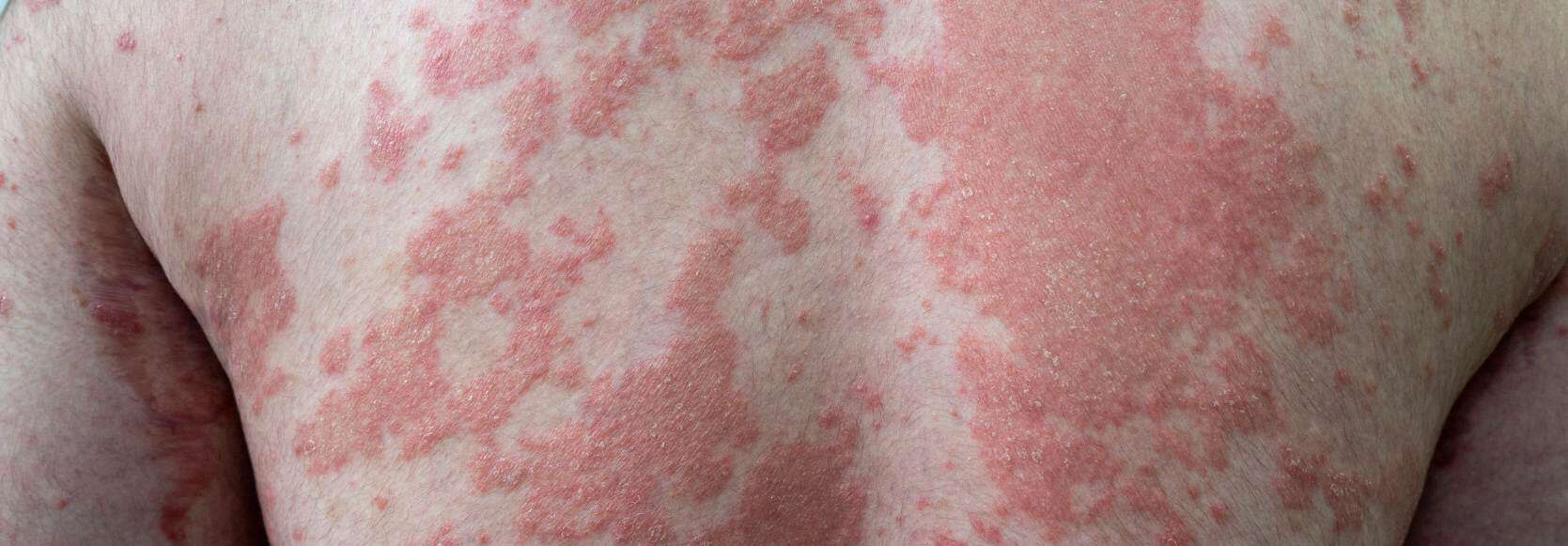Eczema Awareness Month in October is a global initiative spotlighting those who suffer from this demanding skin ailment. Our perpetual aim is to arm you with a well-rounded understanding of eczema‘s core causes, differing treatments and beneficial coping mechanisms. This all-inclusive guide offers penetrating insights into the multifaceted aspects of eczema – from identification of its various kinds to the exploration of effective management methods. We aspire to enhance your daily life, regardless of whether you’re newly diagnosed or have been dealing with eczema for some time.
Unravelling Eczema
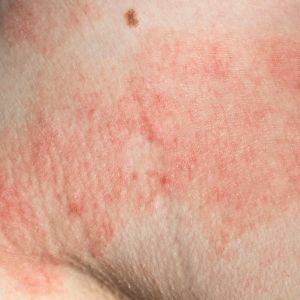
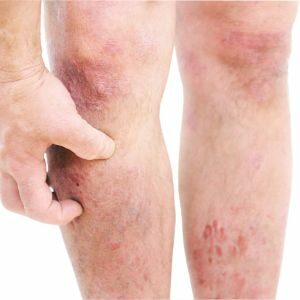
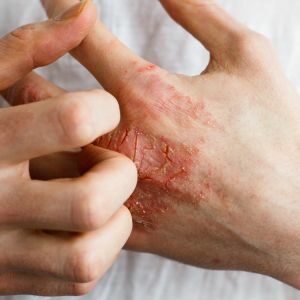
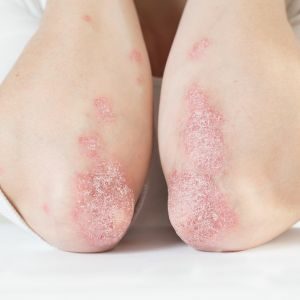
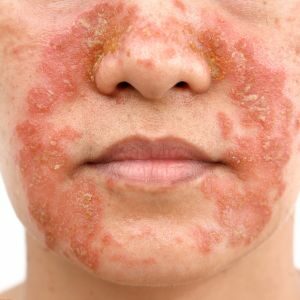
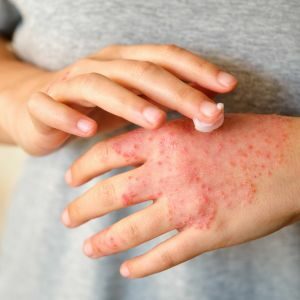
Decoding Eczema Causes
Understanding Eczema and Dermatitis Varieties
- Atopic Dermatitis: Most prevalent in childhood and associated with allergies. Stress and weather changes act as triggers, causing intense itching, especially on the face, hands and feet.
- Seborrheic Dermatitis: Targets grease-prone areas like the scalp and face, leading to flaky and yellowish scales. Hormonal imbalances or skin yeast may contribute to its occurrence.
- Contact Dermatitis: Triggered by direct touch with irritants or allergens, leading to skin redness, itching and swelling. Avoidance of physical contact with the irritant is crucial for its effective management.
- Dyshidrotic Eczema: Characterised by itching blisters on the hands and feet caused by stress, sweating or irritants, this type can cause significant discomfort.
Recognising Eczema Symptoms
Eczema symptoms can greatly differ between individuals and in terms of severity. Frequent symptoms include dry, sensitive skin, inflammation or red patches and severe itching. Some people may experience weeping or crusted sores, while others may develop thick, hardened skin due to incessant scratching.
Prompt recognition of these symptoms can make management of the condition more manageable. As symptoms may change over time, it is necessary to track how your skin responds to varying factors. This valuable information can aid in discussions with your dermatologist. If eczema is suspected, immediate consultation with a healthcare expert is crucial for a precise diagnosis and treatment suggestion, averting serious complications and enhancing quality of life.
Eczema Treatments
The primary objective of eczema treatment is to alleviate symptoms and avert future flare-ups. While no cure is known, various approaches can help to keep the condition in check. Initial treatments usually include topical applications like corticosteroids to reduce inflammation and moisturisers to maintain skin’s barrier functions.
In more severe cases, systemic treatments such as oral medications may be prescribed. These treatments target the inherent inflammatory response. Phototherapy, involving exposure to ultraviolet light, can also be beneficial for some.
Precautionary Steps and Long-Term Eczema Management
Is Eczema Contagious?
Eczema Treatments at St Michael’s Clinic
Eczema Awareness Month is an optimal time to widen your understanding of this condition and show support for those affected. Familiarising yourself with its causes, different types and treatment options can empower you to take proactive steps in managing your skin health. Remember, seeking professional advice can significantly alter your treatment results.
Embark on a successful eczema management journey – schedule a consultation today for customised advice and treatment solutions.

